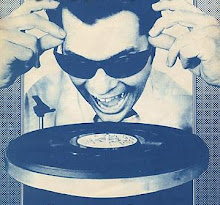 Music affects more parts of our brains than language does—clearly humans are musical animals. What can music tell us about our minds? And what can our minds tell us about music? Can the power of music make the brain come alive? Can it aid people battling severe neurological disorders? And why did Nietzsche declare that "without music, life would be a mistake?"
Music affects more parts of our brains than language does—clearly humans are musical animals. What can music tell us about our minds? And what can our minds tell us about music? Can the power of music make the brain come alive? Can it aid people battling severe neurological disorders? And why did Nietzsche declare that "without music, life would be a mistake?" Throughout his career, neurologist and acclaimed author Dr. Oliver Sacks has encountered myriad patients who are struggling to cope with debilitating medical conditions. While their ailments vary, many have one thing in common: an appreciation for the therapeutic effects of music. According to Sacks's latest book, Musicophilia: Tales of Music and the Brain, anatomists cannot identify the brain of a visual artist, writer, or mathematician—but they can recognize the brain of a professional musician.Tony is an orthopedic surgeon who had no formal musical training. [Then] he was struck by a bolt of lightning. He is now a composer and performer, playing to sell-out audiences.
Debuting this past June, this episode of the long-running PBS series, NOVA, follows four afflicted individuals and even peers into Sacks's own brain to investigate music's strange, surprising, and still unexplained power over the human mind. With Sacks's help, Musical Minds highlights the unusual physical disorders four individuals face—chronicled in Musicophilia—even as it underscores how these people manage, survive, and transcend, often triumphantly. As Sacks says, it seems that music can bring back the feeling of life when nothing else can.Stream this video for free now through July 7 only!
You can stream this NOVA presentation to a PC or other
device now through July 7, after which it will only be
available on DVD. (Click here to learn how to stream video.)
NOVA even puts Sacks himself into a functional MRI (fMRI) machine for two experiments. One of these shows Sacks's overwhelming neurological response when he listens to Bach's Mass in B Minor; but, when compared to a similar piece from Beethoven, his brain is almost unresponsive, revealing his clear distaste for the latter composer.
To us at Floydian Slips, this research—clearly presented in this intriguing NOVA episode—provides vindication why we, and not others, require music in our daily lives in order to function at all. This phenomenon was wholly inexplicable until now.
Note: An earlier book by Dr. Oliver Sacks, Awakenings, was made into a Oscar-nominated film starring Robin Williams and Robert De Niro.



